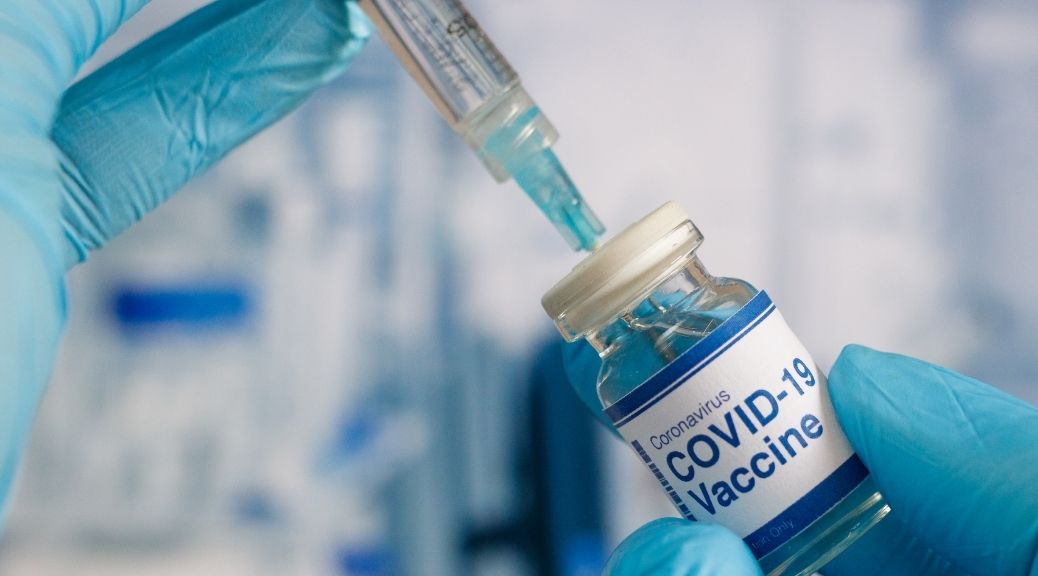In a recent development, iconic health drink brands like Bournvita are set to lose their 'health drink' status. This announcement marks a significant shift in the narrative surrounding these products and raises pertinent questions about the transparency and...

The Vaccination Mirage
The Vaccination Mirage

There was a popular tweet doing the rounds lately. It said, India’s vaccination drive is like going for a marriage. At first, the groom wasn’t ready for it, then there was no suitable match and then the groom, because of not getting what he wanted, had to settle with whatever available. This is a very close comparison to the vaccination scenario in India. At first, we Indians were reluctant in taking the jab, then we started looking for the one we thought was perfect; then we went for whatever was available. This is still pertinent in some parts of India where a good share of the rural and semi-rural population is hesitant in taking a jab. I faced it at my home too when our domestic help refused to take the shot fearing her mother’s threat of dying of vaccination.
If we look around, it is clear as daylight that there are different layers of malfunctioning operating in our country when it comes to the vaccination drive. First, we celebrated defeating the virus early then we started exporting it to our neighboring countries and then all hell broke loose! We had the second wave even more severe. We had no vaccine for the vast 1.38 billion population and still the country is experiencing the shortage issue.
Keeping aside the unavailability issue, think about it. A country with approximately 65% rural population where availability of smartphone and Internet is scarce (approximately 35% access internet through smartphone), the functioning of the vaccination drive through a technology-enabled platform Cowin is a mayhem. Even with the 35% smartphone users, how many are digital savvy to book a slot on Cowin? Understandably, we are bearing its share of outcomes with rampant pandemic spread in rural areas for the first time.
Then there comes the state-center, public/private spat at the cost of the lives of common men. States are blaming for the unavailability of buying foreign vaccines where the center looks baffling without a clear buying and distribution framework. Also, the Supreme Court now calling the center’s vaccine policy “arbitrary and irrational”. As per reports, the Court wanted to know why people between the 18-44 age group need to buy the vaccine when the older population is getting it for free. Moving on, health experts stressed that the only way to win the fight against Covid is by rapidly vaccinating at least 80 per cent of the country’s population to create herd immunity. Its importance cannot be overemphasised especially in the context of the virus’ spread in rural India which is affected by rickety healthcare infrastructure.
A dear friend of mine, working with a media daily recently wrote an analysis where he said, the Covid-19 second wave is shifting base. It is more going to the eastern part of the country-where the occurrence of the disease has already seen a sharp spike of 20% compared to last year. Clearly, vaccination is the only answer to the deadly disease in such areas where healthcare facilities are laughable. And for the larger part of the country too, it is the only succor.
But how are we going to see this happen? By the time the edition will be out, I’m sure there will be more such questions if we do not settle the storm sooner. Putting to rest all such a stalemate, can we look at a policy where a framework to provide free vaccination to the population can be laid? Sure, if we wish to be a $5 trillion economy, $5 billion to vaccinate all is not a big ask.
Happy Reading!
Sharmila Das
Editor
All Editorials
Rethinking Health Claims: Ensuring Transparency and Accountability for Consumers
Transforming Consumer Dispute Resolution: Embracing Technology for Enhanced Accessibility
Consumer dispute resolution panels nationwide are currently undergoing a significant transformation driven by technology-oriented initiatives. The primary aim of this modernization is to enhance accessibility, ensure prompt resolution of disputes, reduce costs, and...
A Vision Unveiled: India’s Budget 2024
People from all walks of life are enthralled by the yearly budget every year. This year, the government's main focus is on fiscal consolidation, with the goal of bringing the budget deficit down to 5.1% in FY-25—a considerable decrease from 5.8% in FY-24. The...
Empowering Choices: A Path to Sustainable Consumerism
Exploring the wide array of consumer choices reveals both positive and negative trends that significantly impact the market, the environment, and society. On the positive side, there is an encouraging shift towards informed consumerism, with individuals prioritizing...
Revitalizing India’s Consumer Landscape and Infrastructural Progress: A Glimpse into 2024
As we stand on the cusp of a new year, there is a palpable sense of anticipation in India, fuelled by the promising prospect of upcoming general elections and a notable reduction in inflation. According to the consensus among chief executives of leading companies,...
India’s Strategic Outlook: A Beacon in Renewable Energy, AI, Healthcare, and Inclusive Finance
In a recent statement, N. Chandrasekaran, the executive chairman of Tata Sons, has illuminated India's pivotal role in the global transition to renewable energy. He underscored India's leadership in investing in cutting-edge energies such as solar, hydrogen, and wind....
Legal Landmark, Fintech Diplomacy, and Progress in India
In a ground-breaking legal development, the Nagpur Bench of the Bombay High Court has made a resounding decision. The Court has nullified the CP Rules, the Selection Committee, and the examination conducted for the selection of Presidents and Members of District and...
A Historic Moment for India and a Global Commitment to Health
History was scripted when The Constitution (One Hundred and Twenty-Eighth Amendment) Bill, 2023, seeking to reserve 33% of seats in Lok Sabha and state Assemblies for women, was passed unanimously by Rajya Sabha, a day after it sailed through Lok Sabha. The passage of...
India’s Remarkable Strides in Space, Education and Economic Reforms
With the successful landing of India's Chandrayaan 3 on the Moon's South Pole, the nation has achieved a significant milestone, solidifying its position as the fourth country to accomplish such a feat. India's historic landing not only marks its place alongside...
Addressing India’s Taxpayer Base and Refunds: A Step Forward
India's tax landscape is showing positive signs of growth and participation, as highlighted by Finance Minister Nirmala Sitharaman. In the fiscal year 2022-23, 2.24 crore individuals out of the total 7.4 crore taxpayers diligently fulfilled their tax obligations,...
India Takes a Stride towards Tobacco Awareness and Infrastructure Development
India is making significant strides on the global stage, tackling critical issues and showcasing its potential for growth and progress. Two recent developments have captured attention: the country's efforts to raise awareness about the dangers of tobacco consumption...
Artificial sweeteners aren’t sweet for your health
Let’s start off with something related to our health, shall we? For those of you who choose diet coke or zero-calorie soda as a means to control your weight, there is some concerning information. The World Health Organization (WHO) recently released new guidelines...
Controversies and many more
A recent video on the super high sugar content of Bournvita by a social media influencer went viral. The Mondelez India-owned health drink company dismissed charges of excessive sugar content, calling the video "unscientific" and accusing it of "distorting facts and...
Is India Growing?
The Union Health Ministry is preparing to alter the Cigarettes and Other Tobacco Products Act, a significant step that will require OTT (over-the-top) platforms or streaming services to display health warnings during smoking scenes in motion pictures and Web series...
An efficient and easy to use screening kit for cervical cancer: A need of the hour
Cervical cancer is cancer of the cells in the cervix. It occurs when cervix cells start to transform into precancerous cells. It is the fourth most frequent female malignancy, which accounted for more than 600,000 new cases and 342 thousand deaths globally in 2020...
‘India: Growing by leaps and bounds’.
Let's start off on a positive note, shall we? An International Monetary Fund (IMF) official predicted that India would contribute 15% to world growth in 2023. In the approaching year, it is anticipated that China and India will each contribute 50% to global growth...
Some Exciting News
Let’s start off with something encouraging, shall we? According to data made public by the Ministry of Statistics & Programme Implementation (MoSPI), India's retail inflation rate reduced slightly from the previous month and continued to fall below the Reserve...
A New India
Let’s start off with some good news, shall we? According to the most recent monthly Refinitiv-Ipsos Primary Consumer Sentiment Index (PCSI) report, consumer sentiment among urban Indians has improved and increased by 1.1 percentage points in December 2022. Amit...
Changing demographics in India
Let’s start off with some good news, shall we? According to the trade group Consumer Electronics and Appliances Manufacturers Association (CEAMA), the Indian Appliances and Consumer Electronics (ACE) market is anticipated to nearly double over the next three years,...
Dynamic subtle changes in India
The Unified Payments Interface (UPI) has changed the country's payment system, thereby promoting economic growth. Since UPI was first launched, life has become easier. UPI is currently accepted everywhere, including by taxi drivers, valet parking services, malls, toll...
Positive Economic Outlook
23 per cent of the world's milk production is contributed by the dairy sector of India. It ranks first across the globe. But the rising cases of the Lumpy Skin Disease have thrown the nation out of gear. The lumpy skin disease is a viral infection commonly occurring...
Pharmaceutical Industry and Ethical conducts- Allegations on Dolo 650
Since the incident of Covid-19 and the high speed spread of infection in the second quarter of 2020 in our country, Dolo-650 has become a household name. It is an antipyretic pill which is manufactured using one of the most common, and oldest, generic formulations...
Plastic Straw Ban On: Fight against Pollution
The Central Government has banned 19 single-use plastic items from July 1, including straws. This ban has led to companies including Dabur India Ltd. and Parle Agro Pvt, racing to replace them with imported paper versions. Of the 380 million tons of plastic produced...
Agneepath and Agniveer: In a Nutshell
In a historic decision by the Union Cabinet, an attractive recruitment scheme for Indian youth to serve in the Armed Forces has been introduced with the name AGNEEPATH. The youth selected under the Agneepath scheme will be categorised as Agniveers. With the...
Cut in Fuel Prices, Subsidy on Cylinders: Easing the Burden
With the announcement by Finance Minister Nirmala Sitharaman of the cut in fuel prices, the citizens of India as a whole heaved a sigh of relief. With the price of petrol coming down by ₹ 9.5, diesel getting cheaper by ₹ 7, it is a sharp cut in central excise duty on...
E-commerce complaints tops list in national consumer helpline
Out of the almost 60,000 odd complaints that reach the central government's national consumer helpline (NCH) every month, about 36% is for e-commerce. In 2020, the national helpline received 6, 54,192 grievances of which 28.5% was e-commerce related issues. Banking,...
Is the Budget 2022 Middle Class Friendly?
The Finance Bill 2022 presented by India's Finance Minister Nirmala Sitharaman on February 1 announced measures for a number of sectors. It aimed at boosting growth amidst growing inflation added with the uncertainties of the Covid-19 pandemic. PM Modi hailed the...
Why India is so cryptic about crypto?
Well, true! Cryptos have been quite popular in India and now with the imposition of 30% tax on all digital incomes including NFTs (Non-Fungible Tokens) and cryptos made the investors community lose a heart again. My introduction to crypto happened just a few...
The other Covid Effets
When we just thought we are in the endemic stage and the worst is over, we’ve variant, Omicron now. It has hit the world. India too has reported 21 cases so far including 7 in Jaipur, 1 in Delhi, 11 in Maharashtra and 2 in Karnataka as I write this piece. I’m sure the...
Festivals lighted up consumption. But will it last?
Festivals, especially Deepawali, the festival that Indians observe to celebrate the return of Ram from his 14 years of exile reminded us of the triumph of good over evil. Indians across the regions celebrate the day differently, however, the ethos across the country...
Veganism and India
FSSAI’s recent Vegan logo announcement is a remarkable development in the popularity of vegan foods in India. Going by different reports, it comes to a surprising fact that there was a 47% rise in the vegan related searches in the year 2020. The growing interests for...
Is the pandemic over now? Is normal consumer behavior about to happen?
Is the pandemic over now? Is normal consumer behavior about to happen? Going by the data, it’s not. And a few parts of the country have been witnessing a surge in the Covid cases including Maharashtra, Kerala, Tamil Nadu, Karnataka and Assam. For the rest of India, it...
What can we learn from Olympians?
What can we learn from Olympians?To be resilient should be the first lesson irrespective of what work you are doing. Irrespective of the time and severity, you will be knocked down at some point and the mental strength to bounce back and punch a blow on the "face of...
Reaching the inaccessible
Atul, a boy in grade 5 used to be a bright and talented student until the pandemic began. Due to the closure of schools, he like many of his friends were unable to continue classes and studies. His mother who used to work in a nearby shoe factory had to give up her...
The Vaccination Mirage
There was a popular tweet doing the rounds lately. It said, India’s vaccination drive is like going for a marriage. At first, the groom wasn’t ready for it, then there was no suitable match and then the groom, because of not getting what he wanted, had to settle with...
ASCI and government guidelines are both yes and no for consumers on how they are maneuvered
The recent guidelines announced by the Advertising Council of India (ASCI) has created a lot of buzz among the brands, influencers, agencies and consumers. While the majority section of the stakeholders is saying this new guideline is going to bode well with the new...
Why consumption is good
There is an amazing capacity of consumption. I feel, we consumers are the happiest souls when we consume something of our choice. Be it a slice of pizza, driving a newly launched SUV, consuming content (print and digital both or mere a book). The bottom line is- our...
Stories of hope in pandemic
The deadliest is again on us. It is dangerous than ever before, took lives of thousands already and showing no sign of settling soon. Where there are numerous stories floating every day on nonavailability of many healthcare facilities, medicines, oxygen and doctors;...




